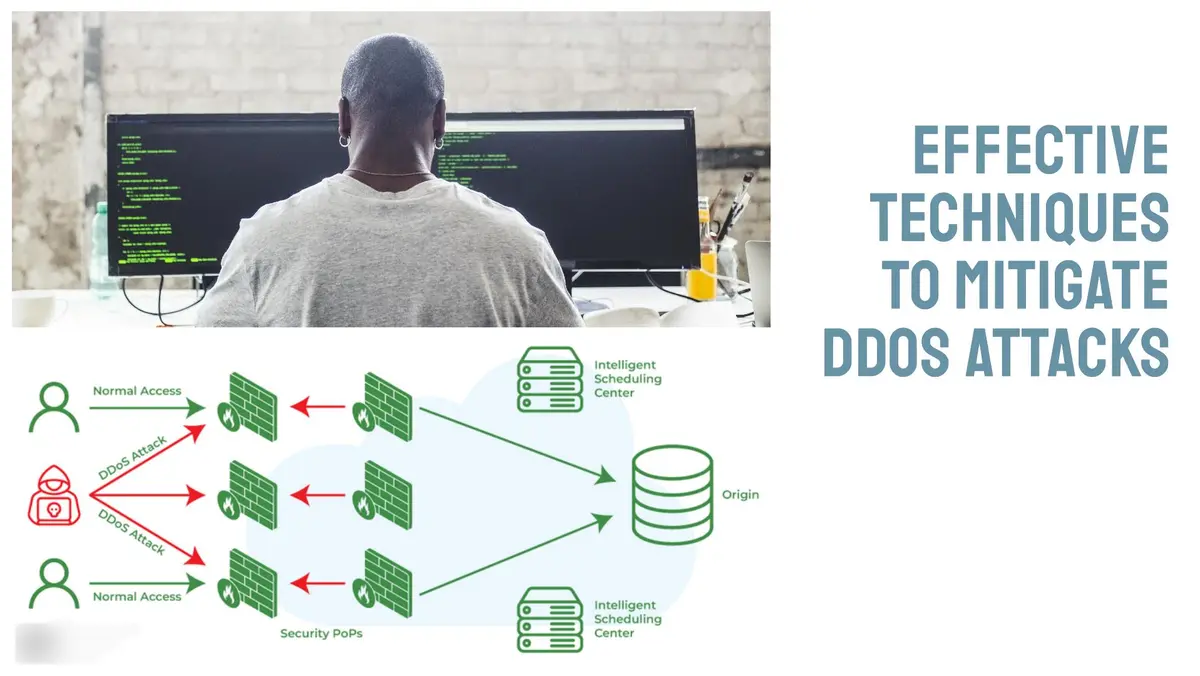
Has your VPS ever been targeted by a DDoS (distributed denial of service) attack? These malicious attempts to overload servers and crash sites are an unfortunate risk when running an online business. However, with some savvy preventative measures and mitigation techniques, you can guard your VPS and withstand DDoS assaults.
What Exactly is a DDoS Attack?
Before diving into solutions, let’s quickly explain what DDoS attacks are and why virtual private servers (VPS) can be vulnerable targets:
- DDoS attacks aim to make an online resource (like a website or server) unavailable by flooding it with superfluous requests from many compromised devices across the internet. This overloads the server which prevents it from responding to legitimate users.
- Targets often include VPS setups because their virtualization allows hosting many sites/apps from a single server. So taking down that one server impacts everything hosted on it.
- Attackers leverage botnets – networks of malware-infected computers, mobile devices, and IoT gadgets controlled remotely. The sheer scale of these botnets allows generating enormous volumes of activity to overwhelm sites.
So in a nutshell, DDoS tactics try to sap servers of computing resources and bandwidth by barrageing them with junk traffic, making them crash or stall. Let’s look at ways to reduce risks and maintain performance amidst attacks.
Best Practices to Prevent DDoS Attacks
Implementing prudent precautions is the first step to keep your VPS infrastructure secure:
Choose Reliable Hosting
Opting for a disreputable or vulnerable web host greatly increases the risks of all kinds of attacks. Some key hosting selection criteria regarding DDoS resilience include:
✔️ Strong network infrastructure (bandwidth, routers, servers, etc)
✔️ Uses anti-DDoS mitigation hardware/software
✔️ Proven experience handling DDoS threats
✔️ Provides DDoS attack alerts
✔️ Responds swiftly in case of incidents
Harden Server Configurations
Lock down your VPS against intrusions by:
- Disabling unused remote services
- Closing unnecessary ports
- Restricting administrative permissions
- Maintaining patches and latest firmware
Implement Security Best Practices
Preemptively tackle vulnerabilities in your setup via:
- Trusted firewalls
- Secure coding practices
- Input sanitization
- Credential protection
- Principle of least privilege
Such well-rounded defense-in-depth diminishes attack surfaces hackers can exploit to stage denial of service campaigns or infiltrate botnets.
How to Detect and React to DDoS Strikes
Despite best efforts, DDoS assaults can still happen. But early detection and prompt counter-measures are key to surviving the temporary turbulence:
Monitor for Warning Signs
- Sudden surges in traffic are telltale signals of brewing attacks. Set up monitoring to know your site’s normal levels and be alerted about suspicious deviations.
- Tools like network analyzers and server load monitors also provide visibility into any spike in resource consumption which telegraphs upcoming trouble.
Have an Incident Response Plan
Preparation shortens reaction times so have an emergency plan ready to set in motion when under fire, detailing:
- Internal notifications – Who gets alerted first about the DDoS identification? InfoSec team? Web administrators?
- Temporary mitigations – What emergency measures can be taken immediately within existing IT systems? Traffic filtering? Employ bandwidth-absorbing countermeasures?
- Communications – Draft reassurances to placate worried customers kept in the loop about service disruptions.
- External support – List DDoS mitigation services to call for assistance (usually offered by hosting companies).
Don’t Panic!
DDoS episodes can appear intimidating but staying calm allows logical responses. Follow the crisis management plan and don’t overload teams with stressful demands. Revisit security protocols after restoring normal functions.
Effective Techniques to Mitigate Ongoing Attacks

When facing denial of service conditions, various technical remedies exist to repel the threats and unburden strained servers:
Use Traffic Scrubbing Services
Specialized DDoS mitigation firms scrub incoming traffic via data centers or cloud infrastructure to filter out malicious activity before it reaches your network perimeter. This cleansing lightens loads on your servers.
Blackhole Suspicious Traffic
Security policies can automatically identify anomalous traffic and then “blackhole” it – rerouting the malicious packets into oblivion instead of your infrastructure. This reliably blocks attacks without requiring manual intervention.
Rate Limit Connections
Introducing caps on traffic volume, connections per client, requests per seconds etc hampers unusually high loads from battering servers. Think of this as a protective barrier stopping floods reaching your VPS by allowing only a manageable trickle.
Deploy Reverse Proxies
An intermediary reverse proxy server shields your VPS origin server to take the initial brunt of bombardments instead of critical backend infrastructure directly facing attacks. This adds a layer of abstraction that cushions impacts.
Bring in More Bandwidth
It’s pricey but certain magnitudes of attacks simply require absorbing blows with extra temporary bandwidth provisioned from ISPs. Combining this with traffic scrubbing solutions quickly amplifies network capacity to provide breathing room.
Key Takeaways: Surviving DDoS Strikes
In review, equip yourself against denial of service offensives via:
✔️ Strong hosting covering DDoS resilience ✔️ Hardened VPS configurations
✔️ Security best practices
✔️ Warning systems to detect anomalies ✔️ Preplanned mitigation procedures
✔️ Traffic analysis and filtering techniques
Also Read:How To Protect Your VPS From DDoS Attacks?
FAQs
Let’s tackle some frequent questions about coping with DDoS:
Why are VPS setups prone to DDoS attacks?
With virtualization, resources are shared across sites hosted on the same physical server. So attacks targeting any client can create collateral damage impeding others on that VPS too.
Can basic security measures thwart DDoS?
Unlike hacking where vulnerabilities enable access, DDoS is based on the sheer scale of disruptive traffic volume. So while essential, standard security alone is often insufficient to handle thousands of bots flooding servers.
Is it advisable to quickly add more bandwidth when under DDoS fire?
This knee-jerk reaction seems sensible but plays into hacker aims of forcing excess spending. It is better to first filter away junk traffic before considering upgrading network capacity.
How do I know traffic increases are from DDoS rather than legit growth?
Sharp traffic spikes beyond normal fluctuations often imply DDoS, especially if requests are malformed or from dubious sources. View server load and crawling tools too for signs of artificial inundation.
Can web hosts provide DDoS protection for VPS accounts?
Yes, many hosts offer proprietary scrubbing solutions or partnerships with mitigation services to handle attacks targeting customers. Check capabilities before choosing providers.
Conclusion: VpsWala Delivers DDoS-Optimized VPS Hosting
We hope these tips give you assurance that concentrating firepower of modern botnets can be survived and overcome. VpsWala in particular specializes in delivering VPS hosting resilient against such brute force assaults.
Our infrastructure is architected for stability with Anycast enabled routes, Bandwidth Alliance partnerships, extensive DDoS mitigation, and expert Security Operations teams. We’ve successfully weathered terabit attacks thanks to these bloodline capabilities developed through years of confrontation.
This battle-hardened hosting environment allows VpsWala clients to withstand fiercest DDoS tempests. Attacks may not be fully preventable but their harm can certainly be minimized through our sheer doggedness. We take on that burden so you can keep calm and carry on with business as usual.
Reach out anytime to learn more about how VpsWala’s DDoS-optimized VPS solutions offer a bastion of stability against denial of service chaos!
